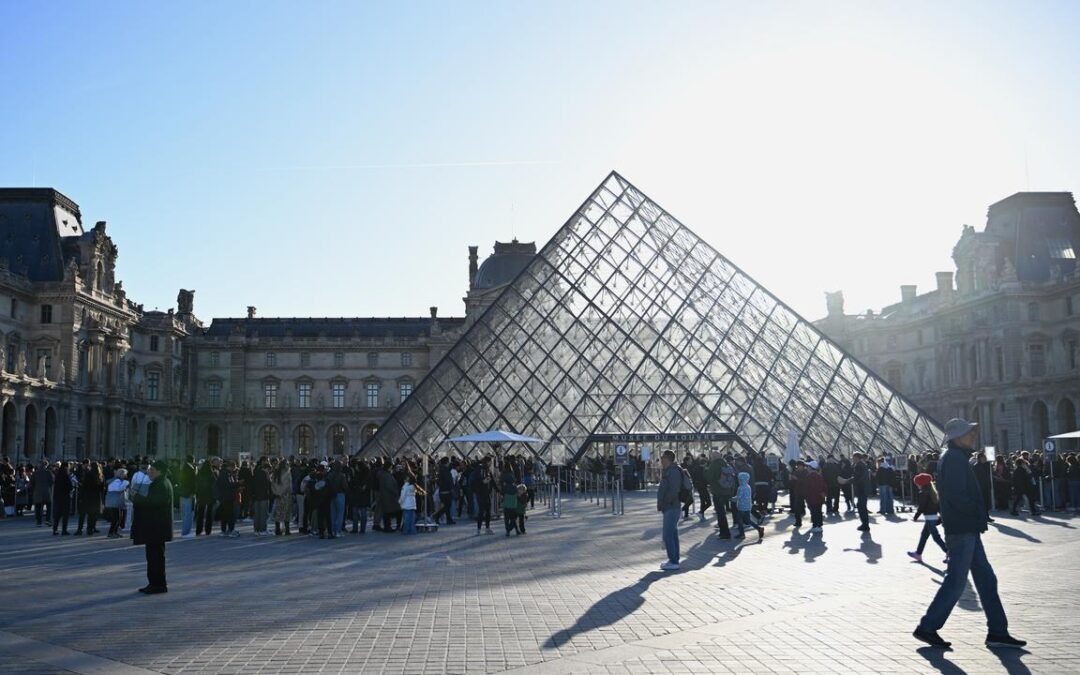
Louvre closes gallery due to structural weakness
France’s Louvre Museum has closed a gallery hosting Greek vases and office spaces as its structures designed in the 1930s are in a dire state, the world’s most visited museum said, less than a month after a daring heist exposed its vulnerabilities.
A new technical report showed weakness in the beams under the second floor of the Sully wing, making it necessary to close the Campana gallery on the first floor and relocate 65 museum staff from the second, the Louvre said in a statement on Monday.
The Campana gallery is adjacent to the Apollo gallery, home to the French crown jewels which were targeted in last month’s heist.
“Staff representatives have been warning about the condition of the building for years, because it affects working conditions and visitors,” said Valerie Baud of the CFDT union.
“But we didn’t realise it was this bad,” she said. “It is a major deterioration in the situation.”
After a heist carried out with relative ease, the closure of the gallery is another sign of the museum’s dereliction as highlighted by a state auditor’s report which said the management had neglected security and infrastructure in favour of artwork acquisitions and post-pandemic relaunch projects.
On October 19, two men parked a movers’ lift outside the building, rode up to the second storey, smashed a window, cracked open display cases with angle grinders and drove away on motorbikes with historical jewels worth $US102 million ($A157 million).
The jewels have not yet been recovered, though four suspects are being investigated.
Originally built in Paris in the late 12th century, the Louvre Palace was for centuries the official residence of the kings of France, until Louis XIV – weary of rebellious crowds in Paris – abandoned it for Versailles, after which it became a museum for the royal art collection in 1793.
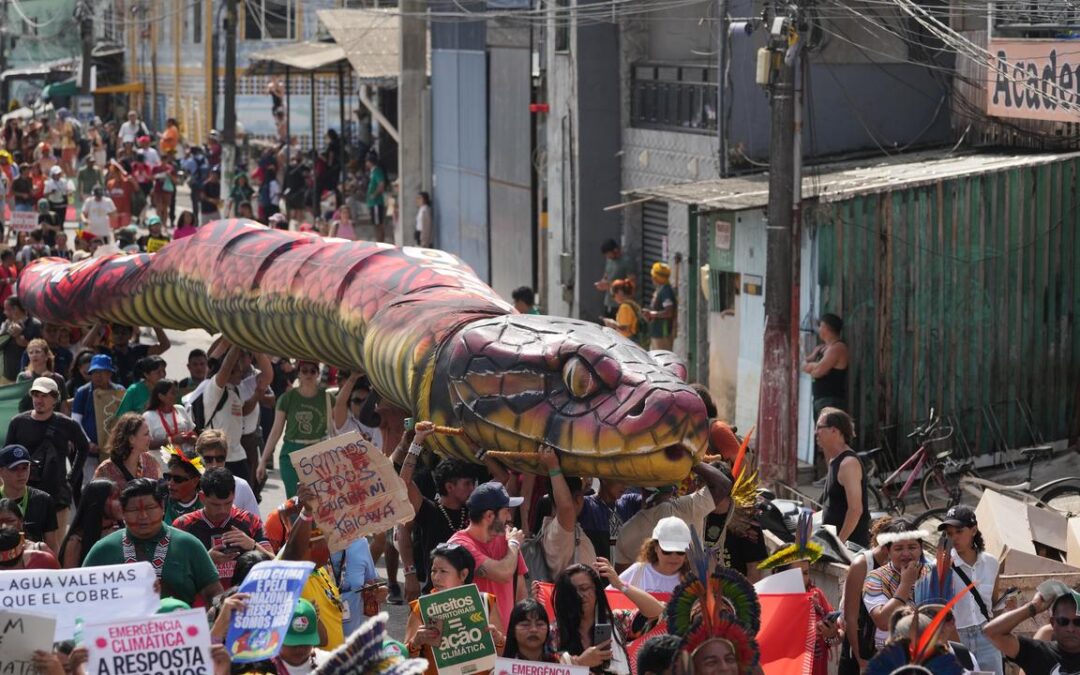
COP30 delegates dig into toughest issues in final week
Government ministers from around the world are preparing for a final few fraught days of talks at the UN climate summit as they bid to secure a deal that demonstrates global resolve amid increasing assertiveness from developing nations.
The job will not be easy. Countries are now digging into some of the toughest issues – many of which have been left off the formal agenda to ensure the talks keep moving even if one issue gets hung up.
Brazilian President Luiz Inácio Lula da Silva is also expected to arrive on Wednesday to help rally consensus among parties at the summit in the Amazon city of Belem ahead of Friday’s final scheduled session.
New dynamics in climate diplomacy have seen China, India and other developing nations flex more muscle this year, while the European Union is hobbled by weakening support back home and the once-dominant United States has skipped out altogether.
Asked if there was any one issue dominating the talks, COP30 President Andre Correa Do Lago replied: “Everything, everything. It’s very complicated.”
Brazil’s top goal for COP30 is to deliver an agreement that reaffirms the 2015 Paris Agreement, while acknowledging its shortcomings by laying out clear plans for future climate action.
The summit’s work is “dry, it’s complicated, it’s anguished, it’s tiring – and it’s absolutely necessary,” said Britain’s energy minister, Ed Miliband.
Over the last week negotiators had a chance to air their differences on three key issues: climate finance, unilateral trade measures, and planned emissions cuts that don’t go nearly far enough.
The Paris treaty’s central goal, to prevent warming beyond 1.5 degrees Celsius above pre-industrial levels, will be missed.
Current emissions trends have the world warming by at least 2.3 degrees Celsius, which Norway’s climate minister said parties agreed would need to be addressed.
“It is a must-have to be able to talk about how we close the gap going forward,” the minister, Andreas Bjelland Eriksen, told Reuters.
A bloc of developing countries is also seeking a payment schedule to ensure wealthy countries follow through on promises made at last year’s COP29 to annually deliver $US300 billion ($A461 billion) in climate finance by 2035. The United States – absent from COP30 – has reneged on past commitments.
China’s growing role in the UN climate talks follows decades of Beijing representing developing-country interests at the talks while growing its own green technology sector.
“It’s not that China set out with a brilliant new strategy; it just happened,” said Li Xing, a professor at the Guangdong Institute for International Strategies.
“With the US stepping back – Trump isn’t interested in this sector at all – China sees an opening and says, ‘We’re interested; we’re willing to go’,” Li told Reuters in Beijing.
Another testy issue has some developing countries grousing about carbon border taxes or tariffs imposed by some countries on Chinese-made green products, given the now-urgent need for the world to speed its clean energy transition.
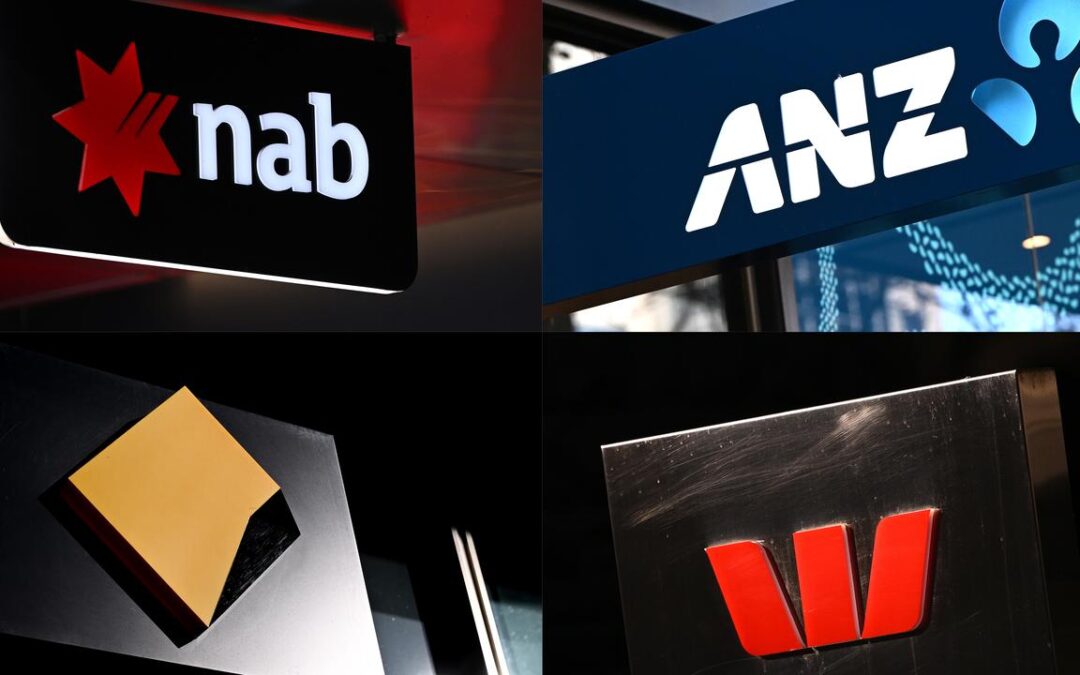
Bank bosses face grilling over AI, scams and practices
The chief executives of Australia’s big four banks are locked in for a parliamentary grilling, with the newest boss the one likely to face the most heat.
The use of AI, surcharging, scam protection practices and more will be on the agenda when leaders of Australia’s biggest banks arrive in Canberra for committee hearings.
The re-elected Albanese government is continuing its practice of inviting the more important lending executives for annual talks.
On Tuesday, Commonwealth boss Matt Comyn and Westpac’s Anthony Miller will face the music, before ANZ’s Nuno Matos and Andrew Irvine of NAB take the hot seat.
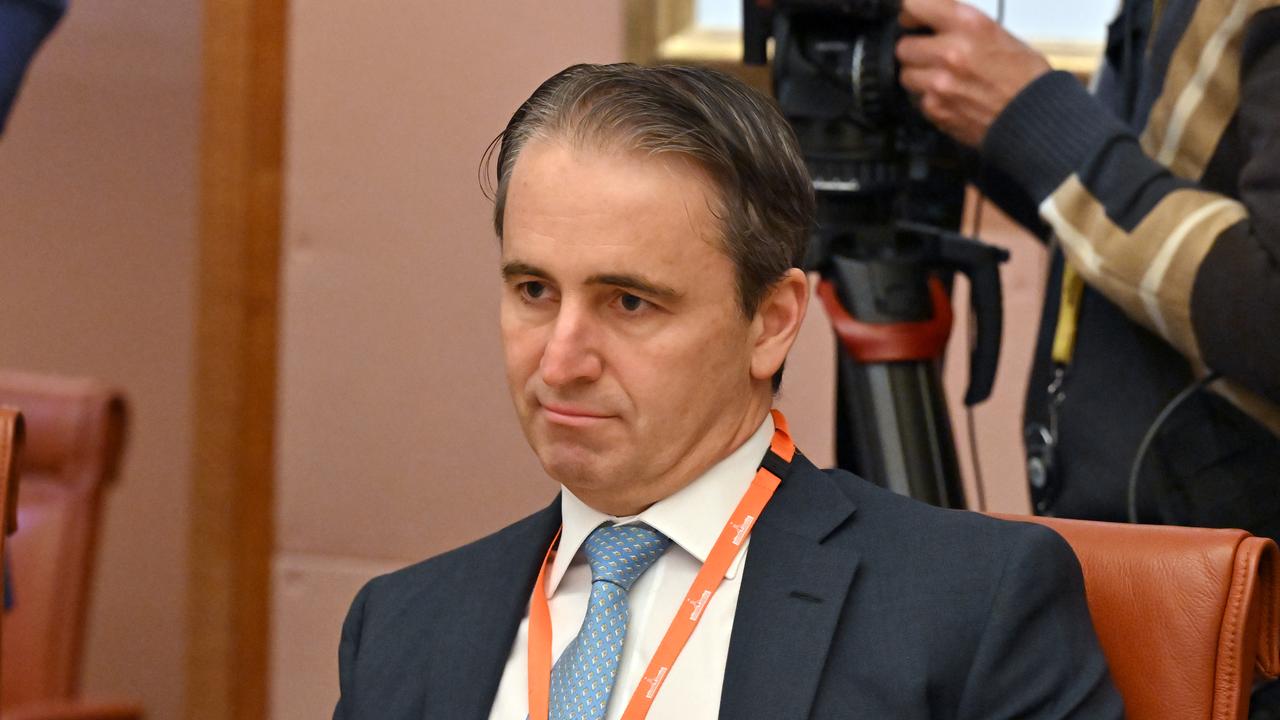
On recent evidence, Mr Matos – the Portuguese executive who took up the role in May – might have most cause to sweat.
In September, the financial regulator asked courts to slug the Melbourne-headquartered bank with $240 million in fines for misconduct in services offered to 65,000 customers and incorrectly reporting bond trading data to the government.
ASIC chair Joe Longo said the bank had a history of non-compliance and betrayed the trust of Australia.
Despite that fine being the highest in ASIC’s history, Ed Husic, the chair of the committee the banks will face this week, believes they got off lightly.
“It should have been higher,” the Labor MP told AAP.
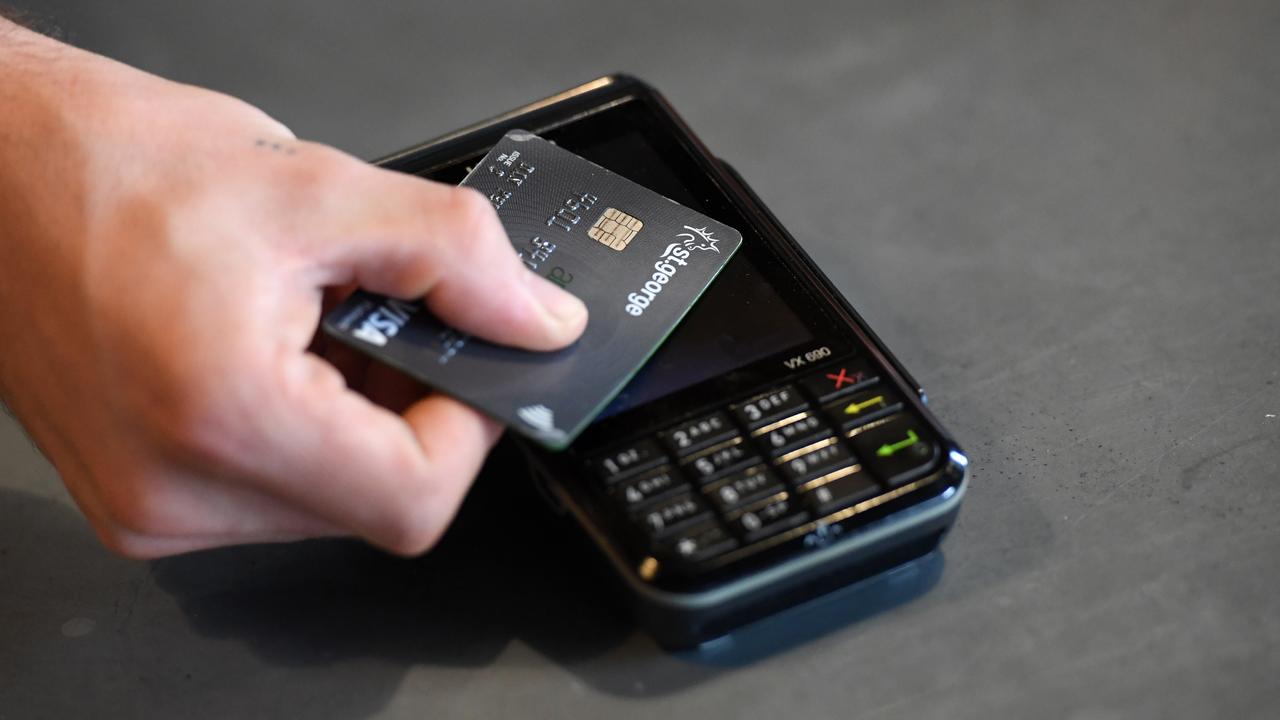
Mr Husic said while that issue would be tough, other areas could be worked through more amicably.
“At its best, the committee will provide an environment to be able to explore issues and have the back and forth between the banks and the committee,” he said.
“From a lot of customers’ point of view, the impact of surcharging, and the value of the money that they hold not being eroded by fees and surcharging. That’s really important.
“The protection from scams and fraud, and the way in which the banks are managing that and the scams, and the way in which the scams framework will be implemented.
“And I think that quite different to other hearings, the focus on artificial intelligence is quite different given the way that the banks have really ramped up its use.”
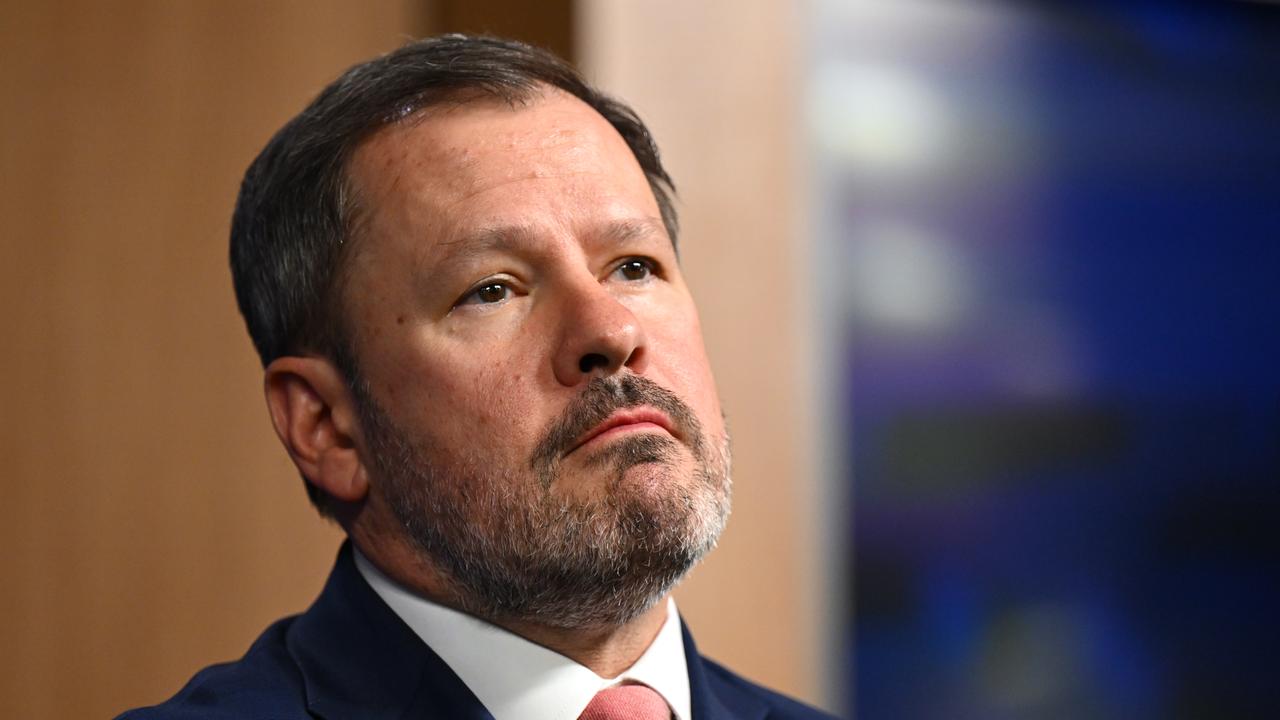
Mr Husic said he was pleased the top banking leaders hadn’t handballed the trip to Canberra to more junior executives.
“The chief executives of all the big four banks will be in attendance,” he said.
“It’s a sign of how seriously they take the committee and, obviously, the fact that the committee has re-started its inquiries is a sign the government takes the transparency offered by this process seriously as well.”
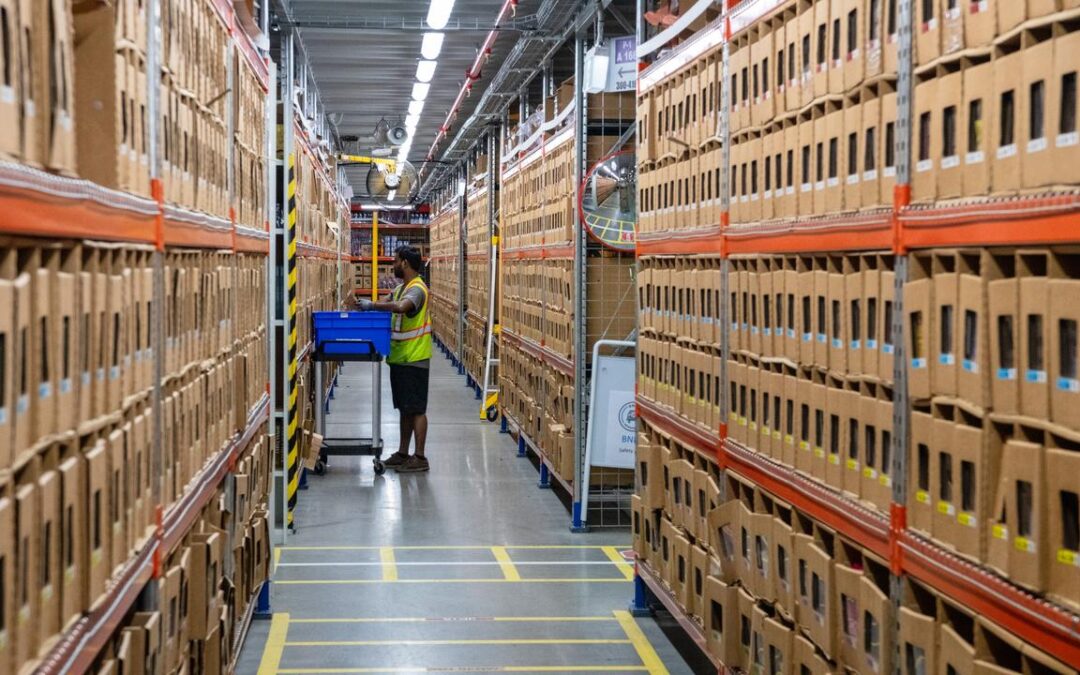
Insight on cash rate pause as economy runs at capacity
The Reserve Bank will shed further light on its decision to deny homeowners a further rate cut when it releases minutes from its last meeting earlier in November.
Australia’s central bank kept interest rates on hold at 3.6 per cent after the meeting in a unanimous decision, following three cuts earlier in the year.
Major banks have now scrapped predictions of another rate cut in 2025, with the RBA’s rate-setting board meeting just one more time this year.
Underlying inflation jumped by one per cent in the September quarter, which RBA governor Michele Bullock said was higher than forecast for the central bank’s preferred prices measure.
Also dampening rate-cut expectations is the unemployment rate falling to 4.3 per cent for October, in figures released after the Reserve Bank’s rate decision.
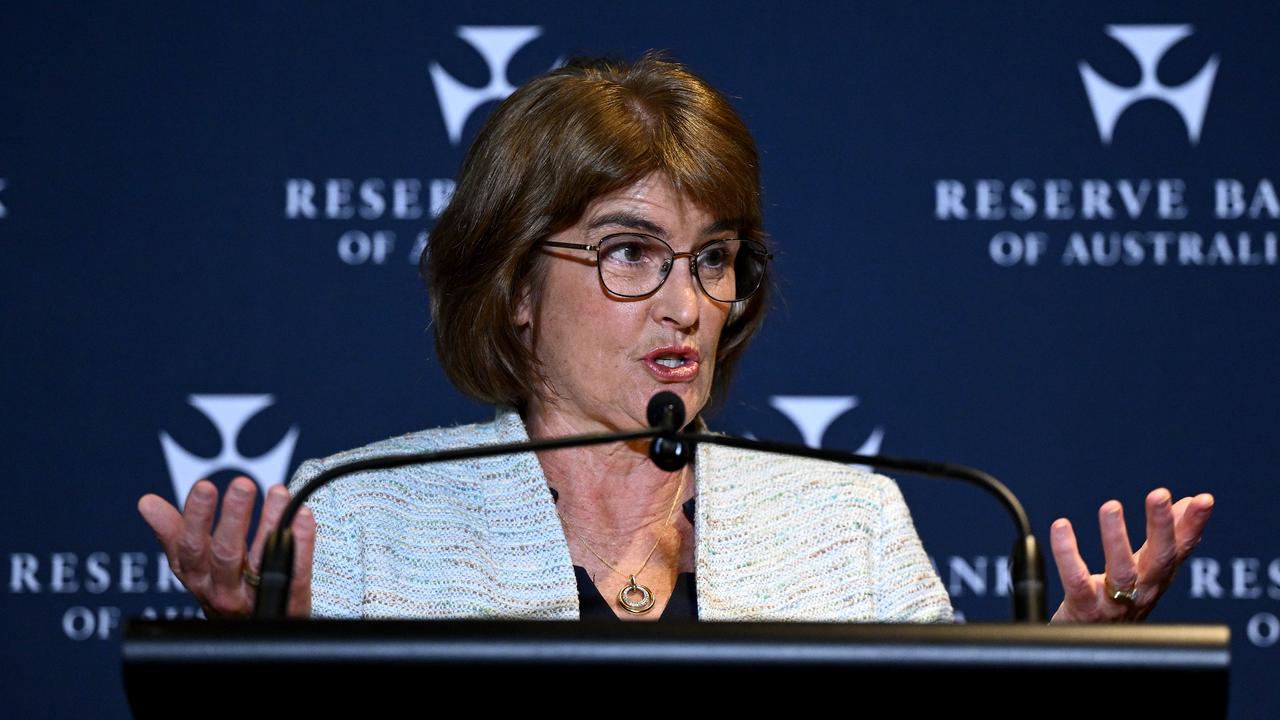
The economic conditions have led to speculation the central bank’s next move could be a rate hike, rather than a cut.
Any chance of a rate increase would likely not come until 2027, HSBC chief economist Paul Bloxham said, but the cycle of cuts to the cash rate may be over already as inflation persists.
“It is still too early to say, but in time it may become clear that the cash rate has already been cut a bit too far,” he said.
“The economy is already operating at, or a bit beyond, its capacity. That is, demand is already growing faster than the supply side of the economy.
“With core inflation already having risen back to the top edge of the RBA’s two to three per cent target, we see it as likely to be quite hard to get inflation sustainably back to 2.5 per cent.”
Mr Bloxham said a large rise in unemployment or decrease in growth may get inflation back to the middle of the target band, but either is unlikely.
“We expect the RBA to be quite patient. As long as core inflation is not accelerating … we see the RBA holding steady in the short run,” he said.
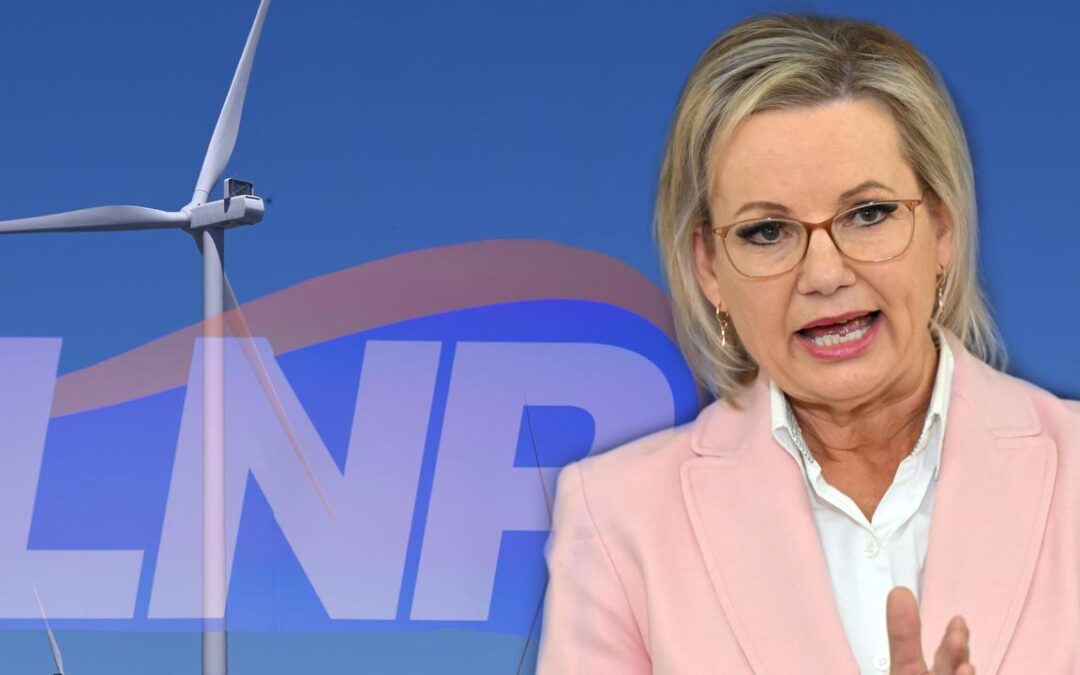
Power up: warning coalition policy will drive up prices
The coalition is touting its new energy policy as affordable and responsible, but an expert warns abandoning climate goals will only drive up costs.
After a damaging internal brawl, the coalition unveiled its policy on Sunday, promising to ditch the net zero emissions by 2050 target if it wins the next election, while also potentially pouring taxpayer money into new coal and gas projects.
Opposition Leader Sussan Ley said she cared about tackling climate change, but would prioritise lowering the cost of electricity and gas.

She said the coalition wanted to continue bringing renewables online, but claimed the shift away from fossil fuels such as coal and gas was happening too fast.
“We believe in affordable energy at the centre of our economy,” she told reporters on Monday.
Unlocking gas supply was a key part of the policy, but Ms Ley has left the door open to new coal-fired power stations as a source of base-load energy to back up renewables in the electricity grid.
A coalition government would also lift the national moratorium on nuclear power and pursue investments in technology, including carbon capture and storage, solar uptake, biofuels and low emissions metals.
Griffith University energy systems expert and Climate Council member Joel Gilmore said the proposed technologies won’t bring bills down and new coal was “incredibly expensive”.
“There’s great wishful thinking that we could go back to the good old days, but just like you can’t buy lollies for one cent at the corner store, you can’t buy coal for rock-bottom prices,” he said.
“It just doesn’t exist anymore.”
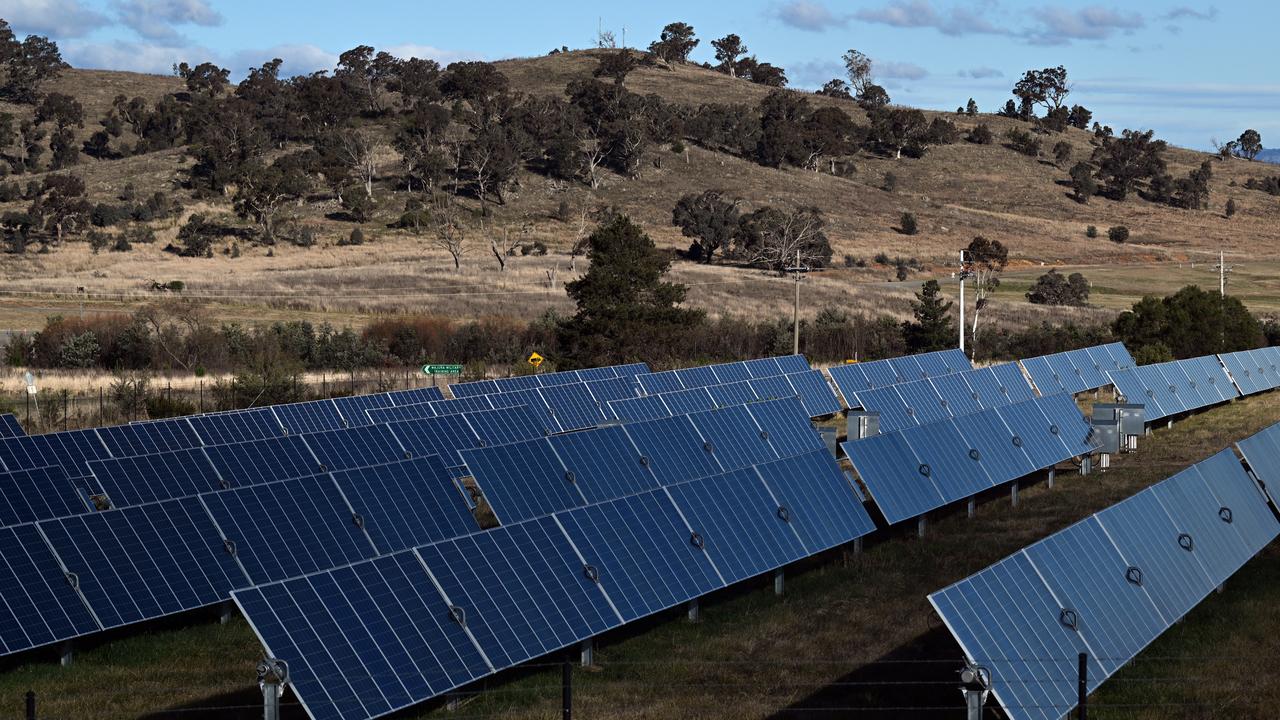
If renewable energy technology had not already been built, electricity prices would be 30 to 50 per cent higher than what they already were, Dr Gilmore said.
“Russia’s invasion of Ukraine has driven a massive increase in electricity cost over the last few years, not renewables,” he said.
The cheapest form of energy was wind and solar backed by storage, Dr Gilmore said, adding nuclear power was only an important technology for nations with no space or renewable resources.
“Australia has the best wind and solar resources. We have to lean into our competitive advantage,” he said.
Abandoning net-zero would also steer away investors, he added.
“If we don’t have that policy certainty, then investors are going to go elsewhere,” Dr Gilmore said.
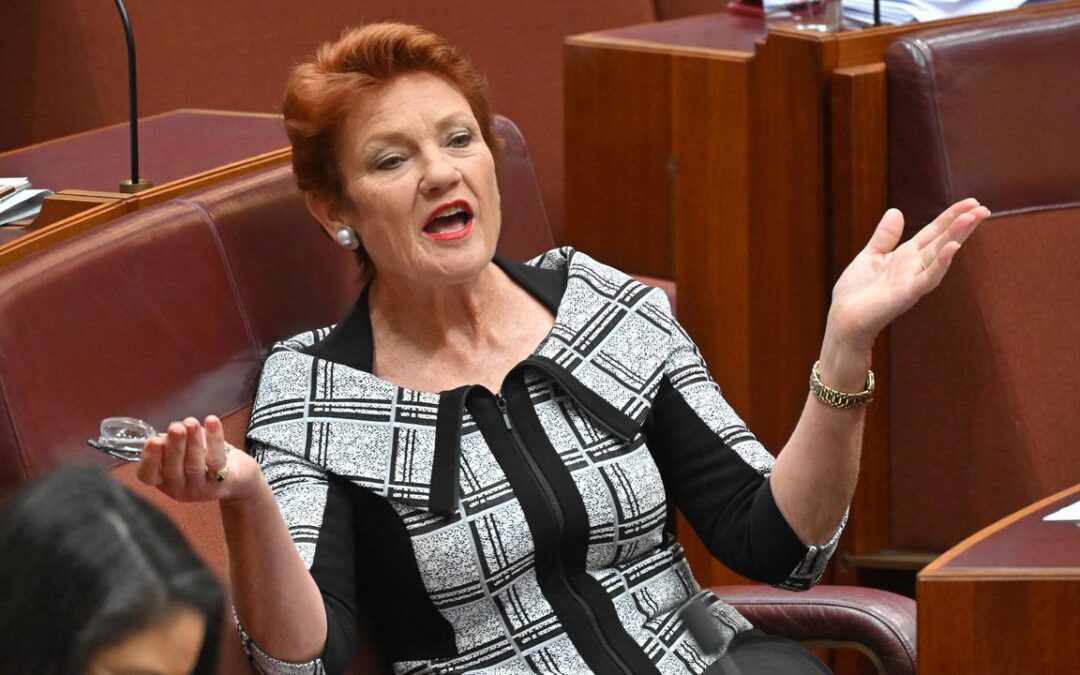
Hanson’s tweet ‘unfit for afternoon tea but not racist’
Pauline Hanson was not driven by racism but rather a need to expose hypocrisy when she told a Greens senator to pack her bags and return to Pakistan.
That is the One Nation leader’s argument as she challenges court findings she engaged in “seriously offensive” and intimidating behaviour toward Greens deputy leader Mehreen Faruqi.
Senator Hanson’s remarks in September 2022 – while not fit for an afternoon tea or the courtroom – were expected by Australian Twitter users accustomed to the argy-bargy of politicians, barrister Sue Chrysanthou SC argued during a Federal Court appeal hearing on Monday.
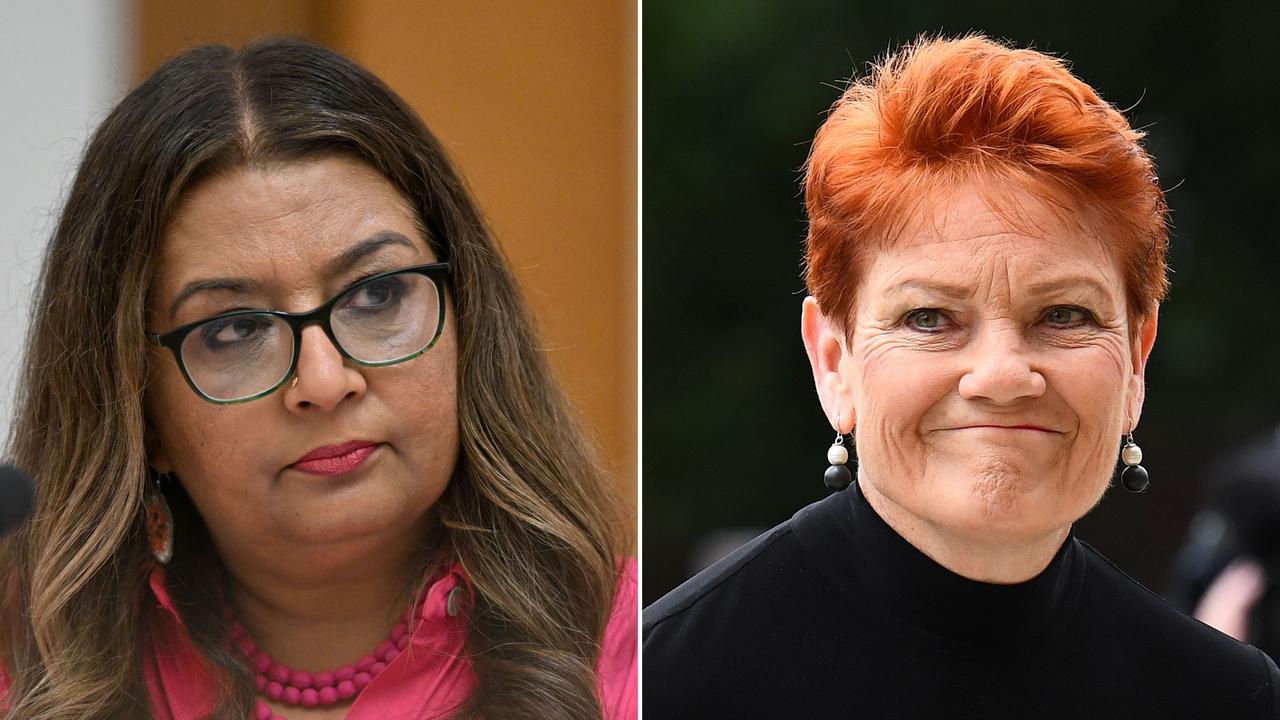
The court could not sit in an ivory tower without grappling with how Twitter users conducted themselves in 2022, often writing things they would not say in person, the barrister said.
Senator Hanson’s post was an attack on Senator Faruqi’s personal views on the death of Queen Elizabeth II and was not driven by her race, colour, national or ethnic origin, the barrister said.
The day of the Queen’s death, Senator Faruqi took to Twitter, now known as X, to offer condolences to those who knew the monarch.
But she added she could not mourn the passing of the leader of a “racist empire built on stolen lives, land and wealth of colonised peoples”.
In a response, Senator Hanson said she was appalled and disgusted by the comments.
“When you immigrated to Australia you took every advantage of this country,” she wrote.
“It’s clear you’re not happy, so pack your bags and piss off back to Pakistan.”
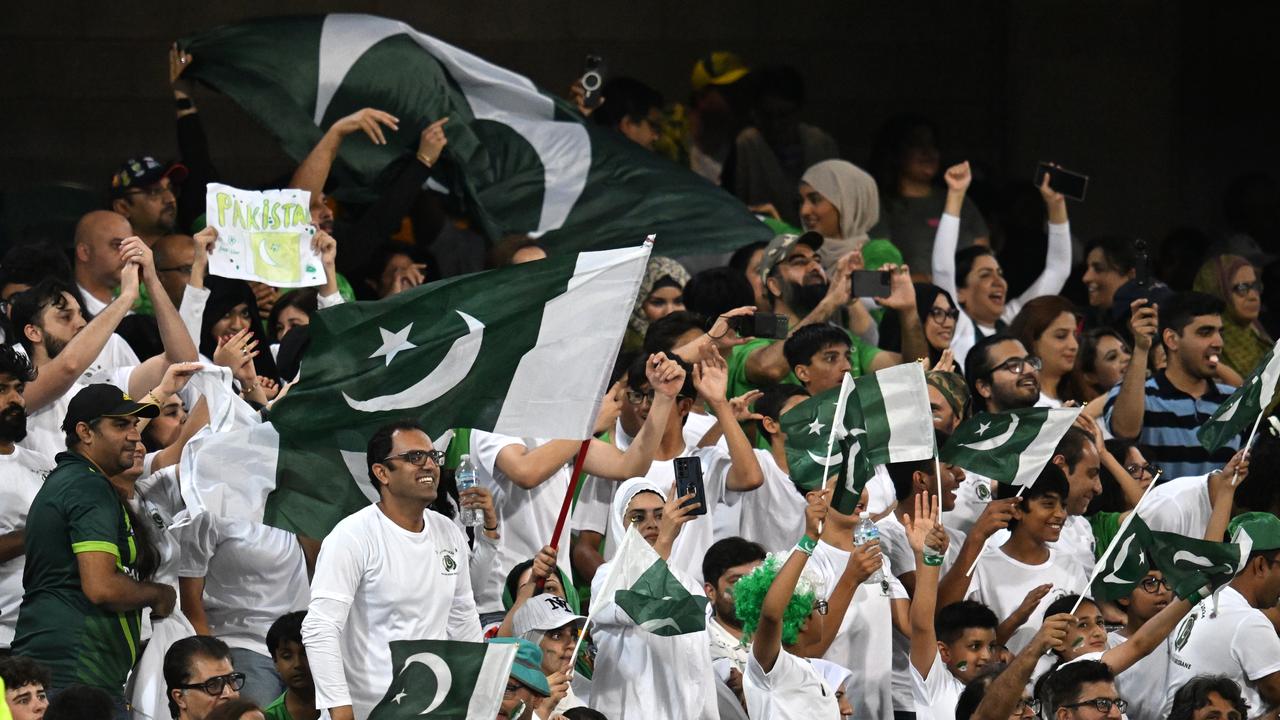
The court’s finding these remarks actually intimidated Australian migrants of colour was extreme, Ms Chrysanthou told the court.
Senator Hanson’s tweet was made following hours of posts by others making similar accusations against the Greens deputy leader, she said.
She pointed out Senator Faruqi’s alleged hypocrisy by criticising the country while deciding to immigrate here, buying property and living off taxpayer-funded income as a senator, the barrister said.
In finding the One Nation leader had engaged in racism, Justice Angus Stewart failed to take this context into account, the court was told.
The Greens’ then-leader Adam Bandt had also been told to get out of Australia after he called for a republic on the day the Queen died, Ms Chrysanthou pointed out.
Senator Hanson’s post also did not refer to any ethnic group, for instance saying “Piss off back to Pakistan and so should everyone else from Pakistan.”
“It’s not necessarily a racially motivated reason to say to that person, ‘Why don’t you just leave? If you don’t like it here, leave’,” Ms Chrysanthou said.
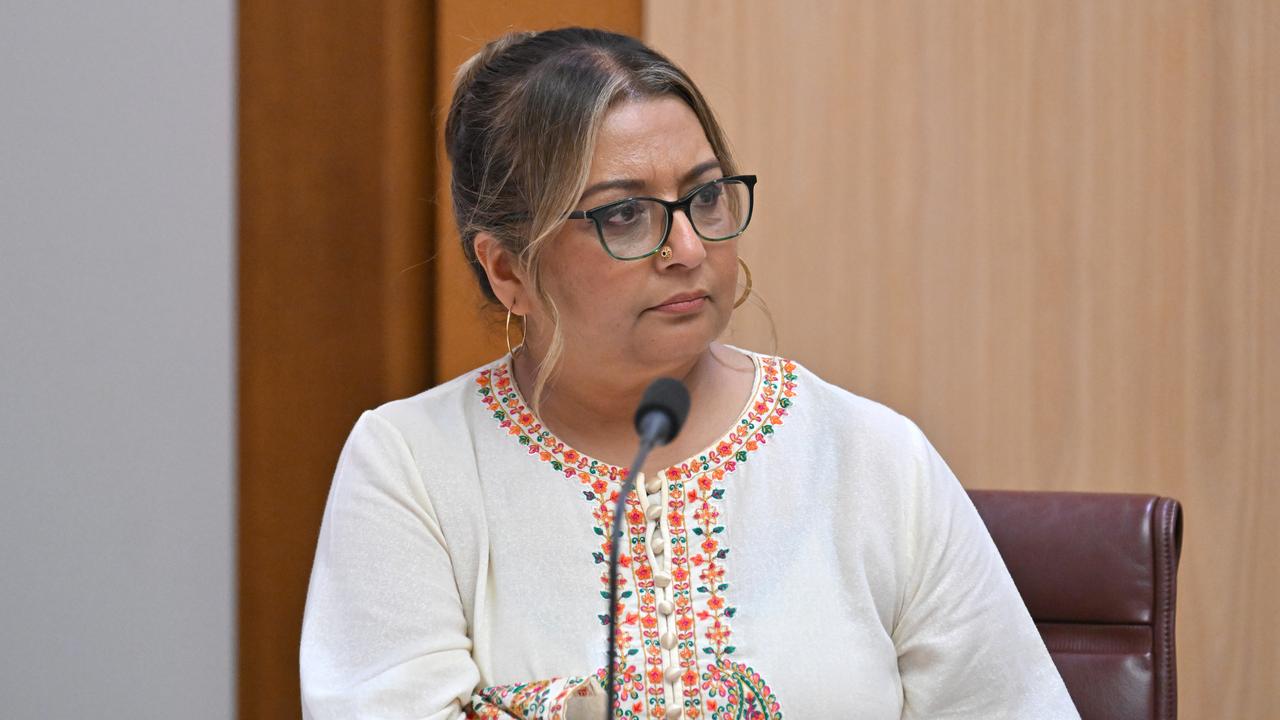
Hanson’s tweet was found to have breached 18C of the Racial Discrimination Act – a clause that has survived repeated efforts by conservative politicians to strike it out.
In his November 2024 findings, Justice Stewart found that migrants of colour, Australians who had recently immigrated, or Muslims who were people of colour in Australia would be insulted, offended, humiliated and intimidated by the tweet.
“It is a message that Senator Faruqi is, as an immigrant, a second-class citizen, and that she should be grateful for what she has and keep quiet,” he said in his Federal Court ruling.
The phrase “go back to where you came from” was a racist, anti-immigrant and nativist trope traceable to the White Australia Policy, the judge declared.
The appeal hearing continues.
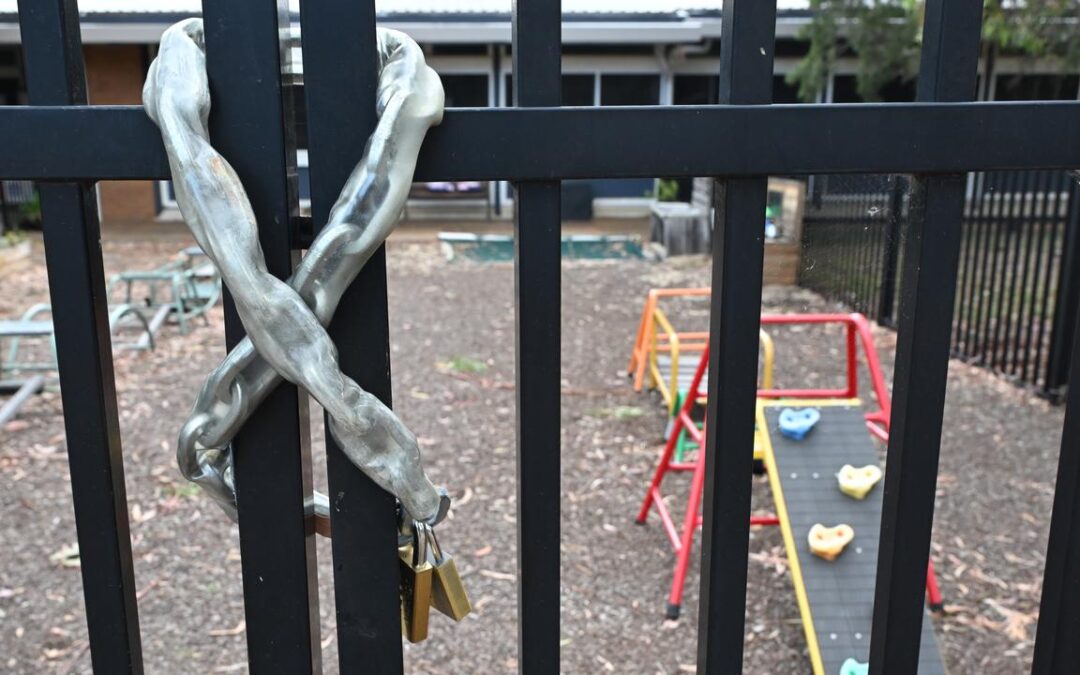
Risk to children low amid asbestos scare, expert says
Children exposed to toxic, coloured sand that’s forced dozens of schools to close, face an extremely low risk of asbestos contamination, an expert says.
Families have been told they shouldn’t be alarmed by the asbestos scare after the tainted rainbow-coloured sand sold in shops across Australia was removed from shelves and located in schools.
About 70 schools in the ACT have also been closed for decontamination after the toxic substance was reported in a number of brands of children’s sand products.
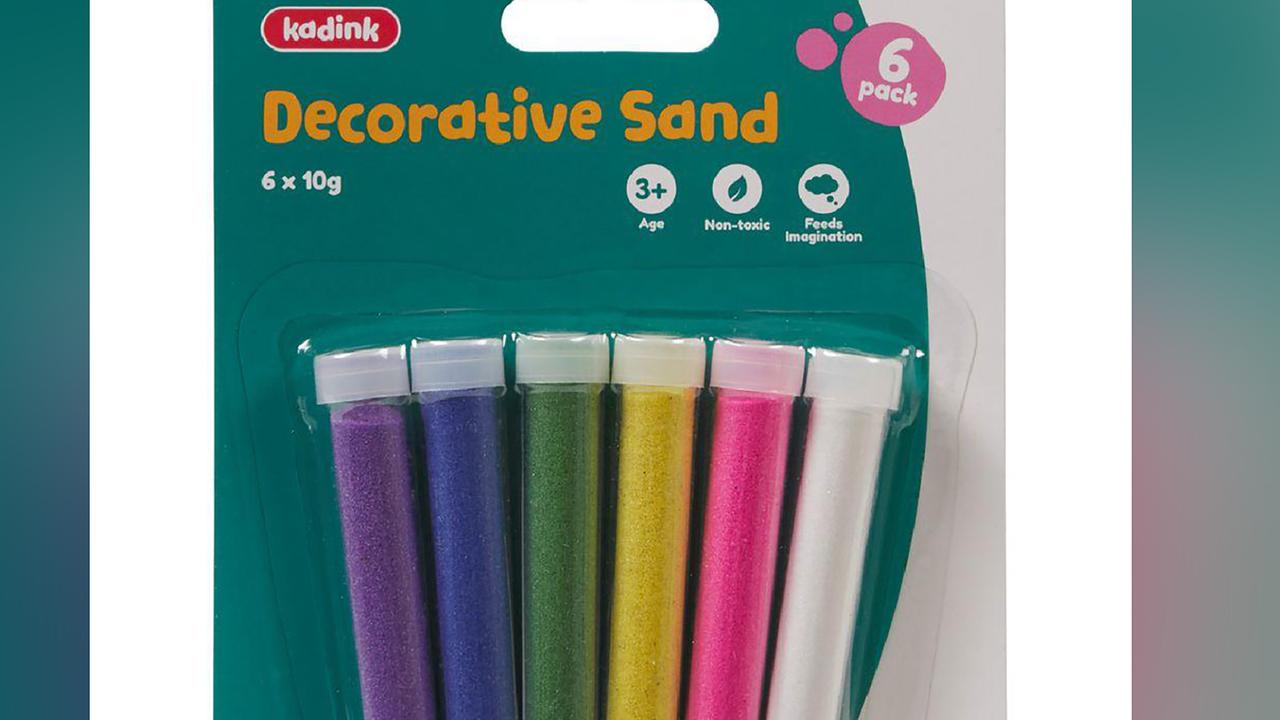
Asbestos is a “deadly dust” and exposure to even a small amount can lead to terrible consequences, the Asbestos and Dust Diseases Research Institute’s Anthony Linton said.
But asbestos did not appear to be airborne in the latest scare which helped minimise the risk, he said.
“They (people) are absolutely right to be nervous, but … it feels as though very much that this asbestos is within the sand itself,” Dr Linton told AAP.
“So it is not particles floating through the air that is going to be breathed into the lungs.”
It was too early for parents to look for symptoms of asbestos exposure in their children and there was no simple test for it, Dr Linton said.
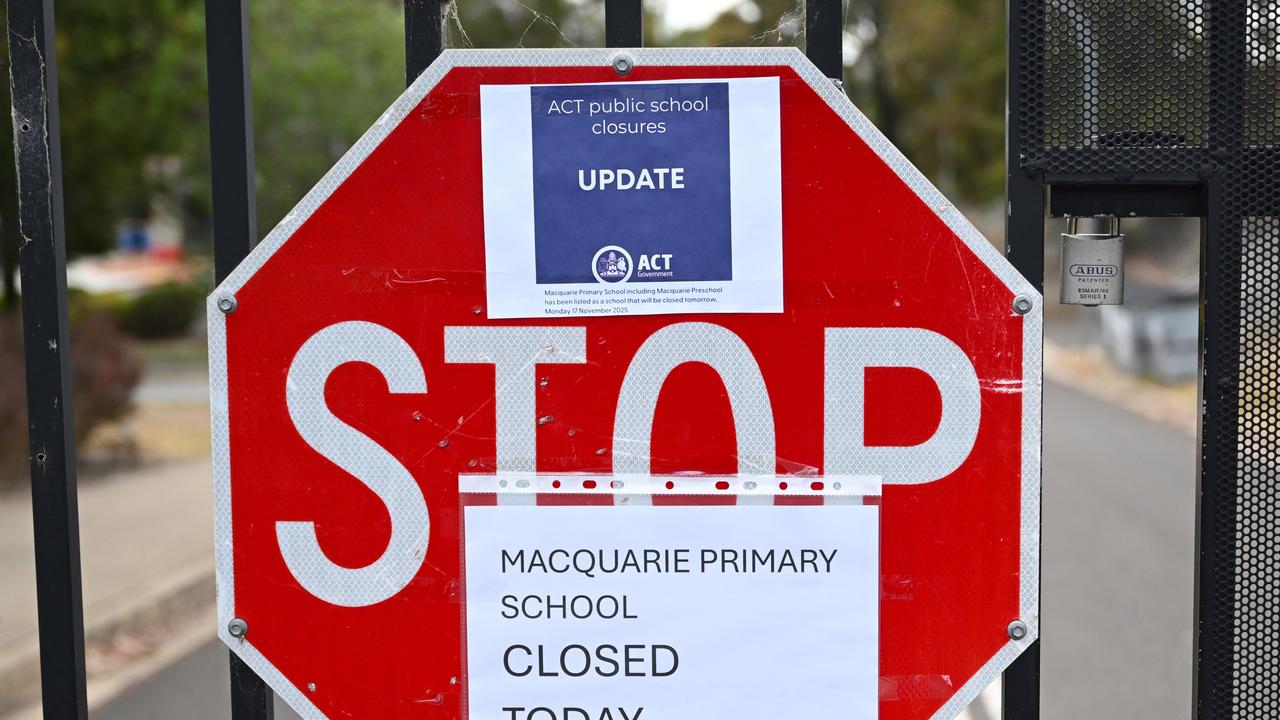
The contamination risk for the children and adult teachers exposed to the sand across dozens of schools was considered “very low”.
“However, you can never say 100 per cent and that’s why the appropriate amount of caution is essential,” he said.
In the ACT, 69 schools were closed on Monday after more coloured sand products were recalled due to asbestos contamination concerns.
A Brisbane school was closed on Friday while another was identified with the affected product, the Queensland government said.
Some school closures could last days.
People who find the sand product at their homes should dispose of it properly to avoid a repeat of the Sydney asbestos crisis, when asbestos-contaminated mulch was found across dozens of parks, schools and other public NSW sites in 2024.
“There has been cases where people will throw asbestos into green bins that then get processed and turned into mulch,” hazardous materials management firm EDP Consultants’ John Batty told AAP.
“We don’t want these products getting back into the community.”
People should double bag the product, seal it with strong tape and label it “do not open” before visiting the Asbestos and Silica Safety and Eradication Agency website for more information.
Asbestos removal contractors worked over the weekend to remove sand supplied by Officeworks from ACT schools.

Widespread ACT school closures were announced after Kmart and Target also issued a voluntary recall for a colour sand product.
Licensed asbestos contractors will test, remediate and clear the spaces for use again, the ACT government said.
“All of the air testing that our contractors have done across public schools so far has been negative to airborne asbestos.”
Safety alerts have been issued in nearly every state and territory urging schools, consumers and service providers to stop using the sand products.
Products linked to the asbestos scare have been identified at more than 100 sites in South Australia, with hazard alerts issued but no schools closed.
The product found at ACT schools was imported from China and sold as Kadink Decorative Sand in tubes weighing 10 grams, Worksafe ACT said.
It comes after a national recall of children’s sand products sold at retailers including Officeworks, Educating Kids, Modern Teaching Aids and Zart Art.
The Australian Competition and Consumer Commission issued alerts after asbestos traces were detected in laboratory testing.
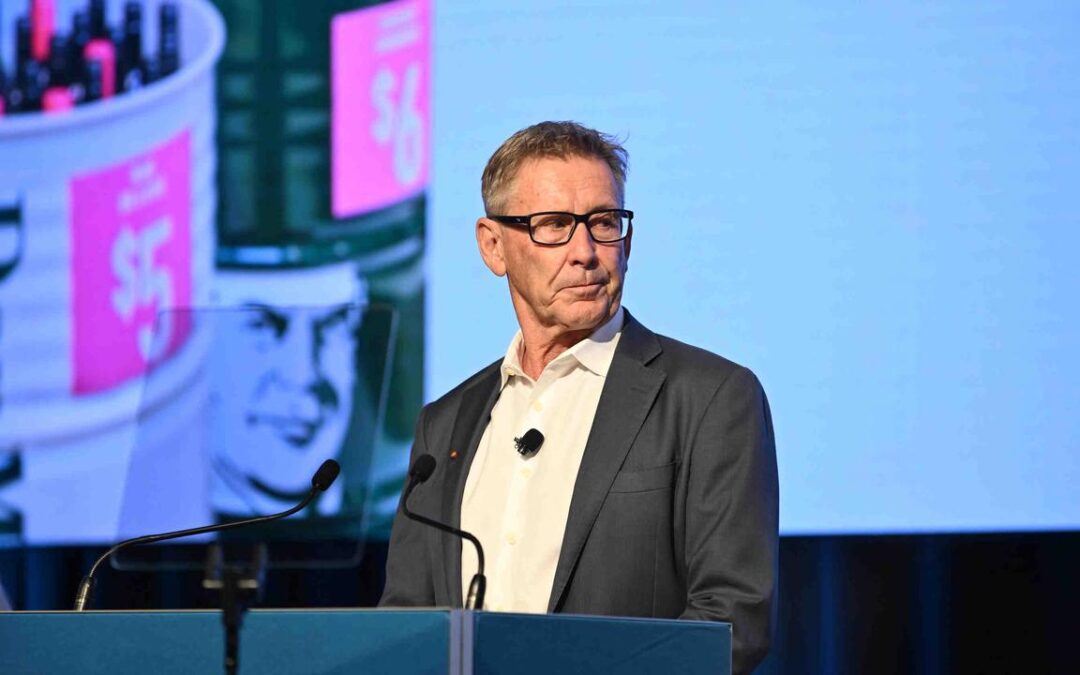
Christmas bookings strong at leading pub group
Australia’s largest alcohol retailer is seeing a pickup in sales heading into the key holiday trading period.
Endeavour Group’s retail division got off to a soft start in 2025/26 but sales at BWS and Dan Murphy’s began picking up in September and that momentum continued in October, interim chief executive Kate Beattie told the company’s annual general meeting on Monday.
The company’s pub business had a better first quarter, with sales up 4.4 per cent to $592 million, which Ms Beattie credited to hotel renewals, new food and bar menus and new gaming machines at many of the company’s 354 licensed venues.
“I’m pleased to say Christmas bookings are already very strong and we are expecting over 40,000 guests to come together and enjoy their festive celebrations with us,” Ms Beattie said
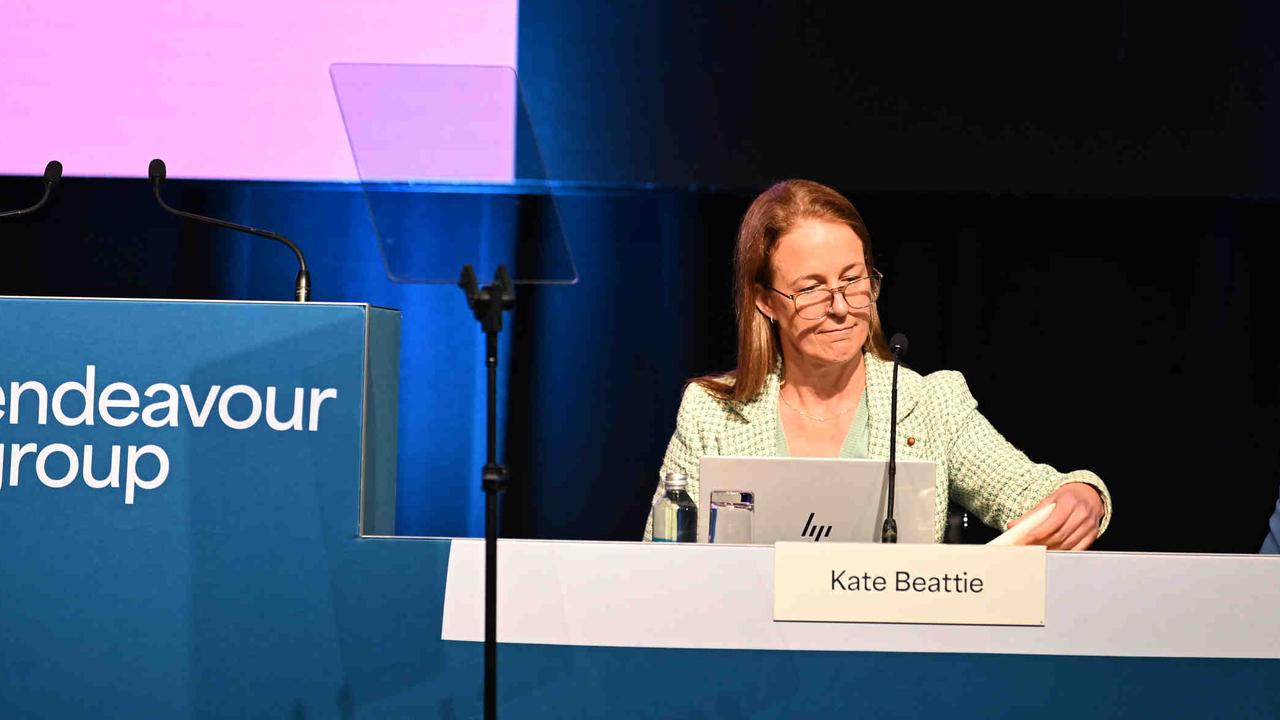
Shareholders weren’t as happy, however, with a number asking questions about what the board was doing to revive Endeavour’s share price.
EDV shares were changing hands at $3.66 at midday on Monday, down 0.1 per cent from Friday and 12.5 per cent lower from where they were at the start of the year.
“I acknowledge this has been a challenging year,” chairman Duncan Makeig told shareholders.
Mr Makeig expressed optimism about the foundations for change that that had been put in place, including a renewed board and new leadership.
Former Virgin Australia, A2 Milk and Jetstar Group CEO Jayne Hrdlicka is set to begin as Endeavour’s next chief executive on January 1, pending regulatory approval.
“Jayne’s credentials are outstanding,” Mr Makeig said.
Endeavour has also appointed several other new leaders, including recently hiring Supercheap Auto managing director Benjamin Ward as the next managing director of Dan Murphy’s and Woolworths executive Jeannette Fenske as managing director of BWS.
Both will start in January, as will former Qantas executive Catriona Larritt in the newly created role of chief customer officer.
The company has a group-wide strategic review underway that is set to conclude in the first half of 2026, with possible outcomes including spinning off Endeavour’s pub division and reducing costs.
A tally of proxy votes presented at the meeting suggested the renumeration report was set to pass narrowly, with 78 per cent support.
It needs 75 per cent for the company to avoid a “first strike” on executive pay.
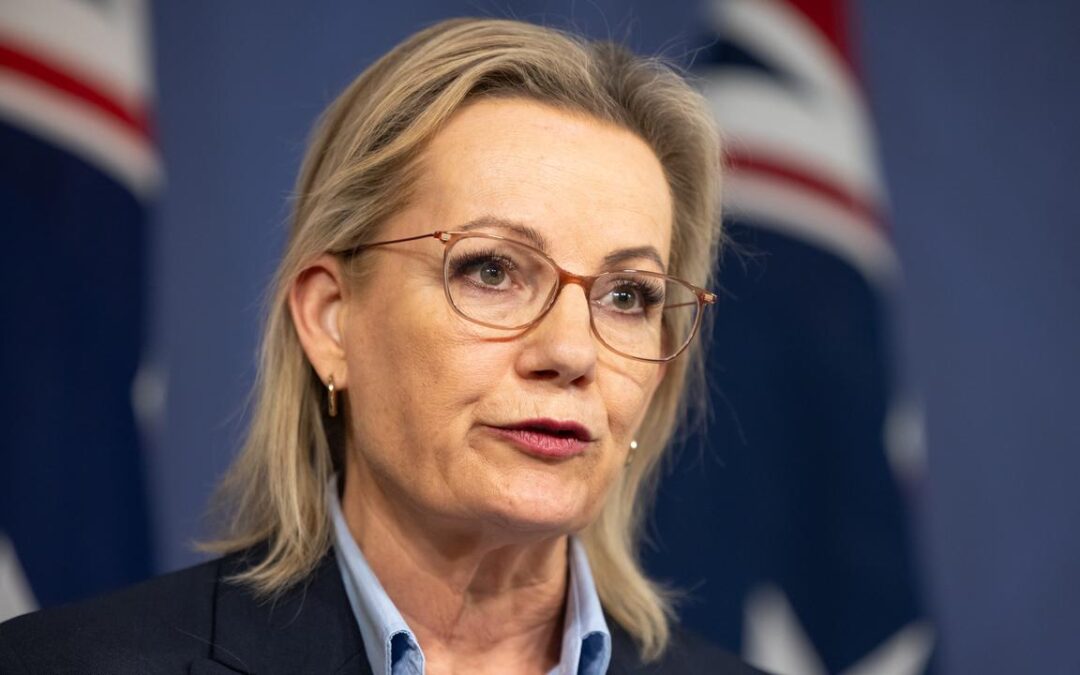
Moderate MPs rally around Ley amid leadership turmoil
Furious moderate Liberals are hosing down suggestions they may back ex-SAS soldier Andrew Hastie to take over the party’s top job, following intense speculation about Sussan Ley’s leadership.
After a bruising week where Ms Ley promised to scrap Australia’s climate targets if she were to win government, a newspaper report suggested her disillusioned moderate colleagues could support a rival bid for the leadership by Mr Hastie.
The Western Australian MP has made no secret of his desire to take over the Liberal Party at some point, but conservatives have said there were no immediate plans to mount a challenge.
On Monday, The Australian reported a growing number of moderate Liberals had pulled their support for Ms Ley and would likely back Mr Hastie if a vote were held this week.
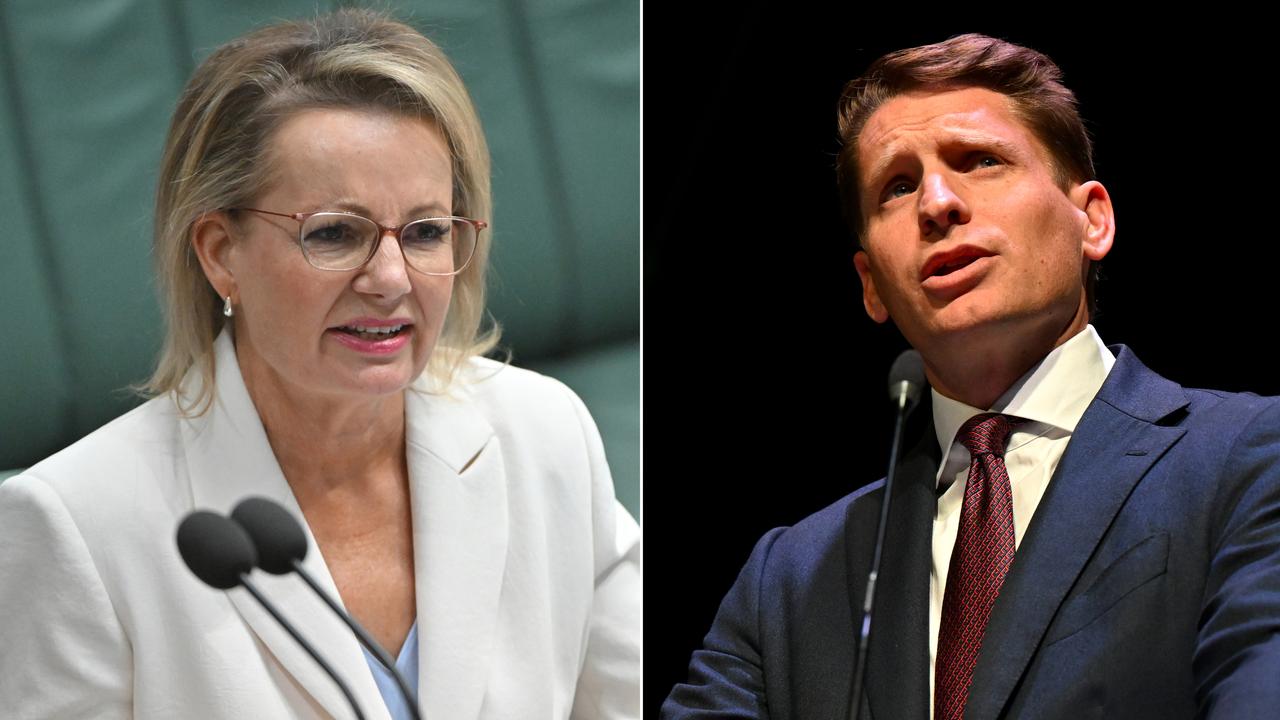
Members of the faction disputed that publicly, while some privately conceded a small handful of moderates may be seriously considering the switch.
“Media reports this morning about the moderates are incorrect,” leading moderates Anne Ruston and Maria Kovacic said in a joint statement.
“We, along with an overwhelming majority of our moderate colleagues, continue to strongly support Sussan’s leadership.
“This matter was resolved in the party room six months ago and Sussan will lead us strongly to the next election,” the pair said.
Ms Ley is also a moderate and previously expressed support for the nation’s climate targets.
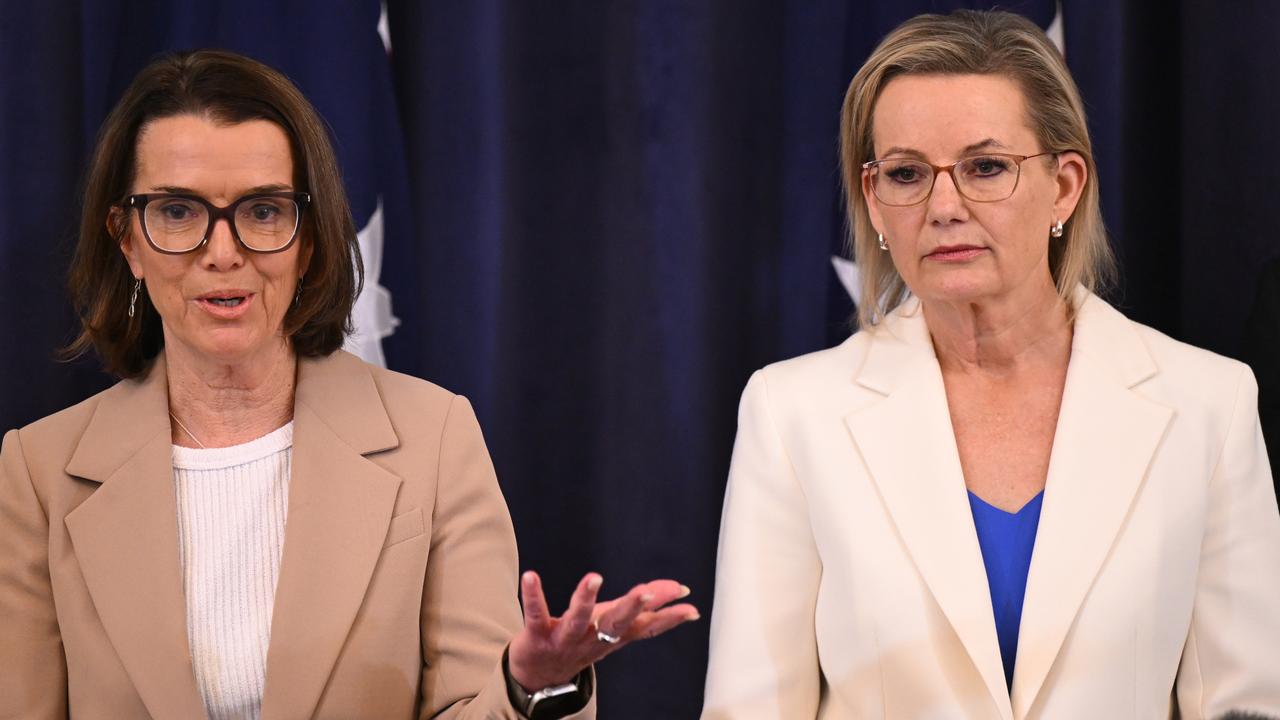
Party members widely viewed Ms Ley’s decision to abandon net zero emissions by 2050 as a major concession to the party’s conservative factions and the Nationals.
Right-wingers, including Mr Hastie, are now plotting a similar internal campaign on migration policy.
Confronted during a radio interview with a compilation of talkback callers who said they wanted Mr Hastie to take the reins, Ms Ley said people were entitled to their views but she was focused on policy outcomes.
“I’m not here for a sense of ego about me,” she told 2GB on Monday.
Internal angst was further heightened by a new Redbridge/Accent Research poll which showed a five-point fall in support for the coalition, to a record low primary vote of 24 per cent.
Just 10 per cent of voters ranked Ms Ley as their preferred prime minister, compared to 40 per cent for Anthony Albanese.
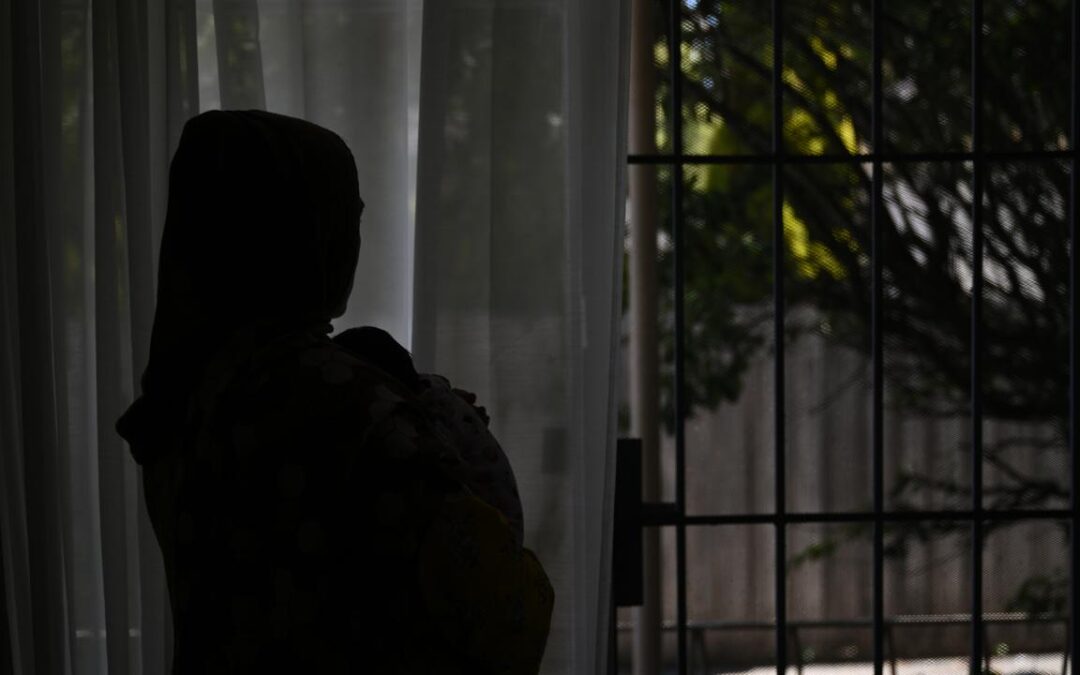
Charities at stake after fail on workers comp reform
Struggling families and those impacted by natural disasters are being warned to brace for fewer services as steep hikes to insurance premiums bite charities and small businesses.
Reforms to curb workers’ compensation claims, aiming to rein in spiralling costs, were voted down in parliament on Friday.
The changes would have made it harder to claim for psychological injuries like post-traumatic stress disorder, anxiety and depression in the scheme, which covers more than 3.6 million workers in NSW.
The state government says psychological claims comprise 12 per cent of workers compensation claims, but 38 per cent of the scheme’s total cost.
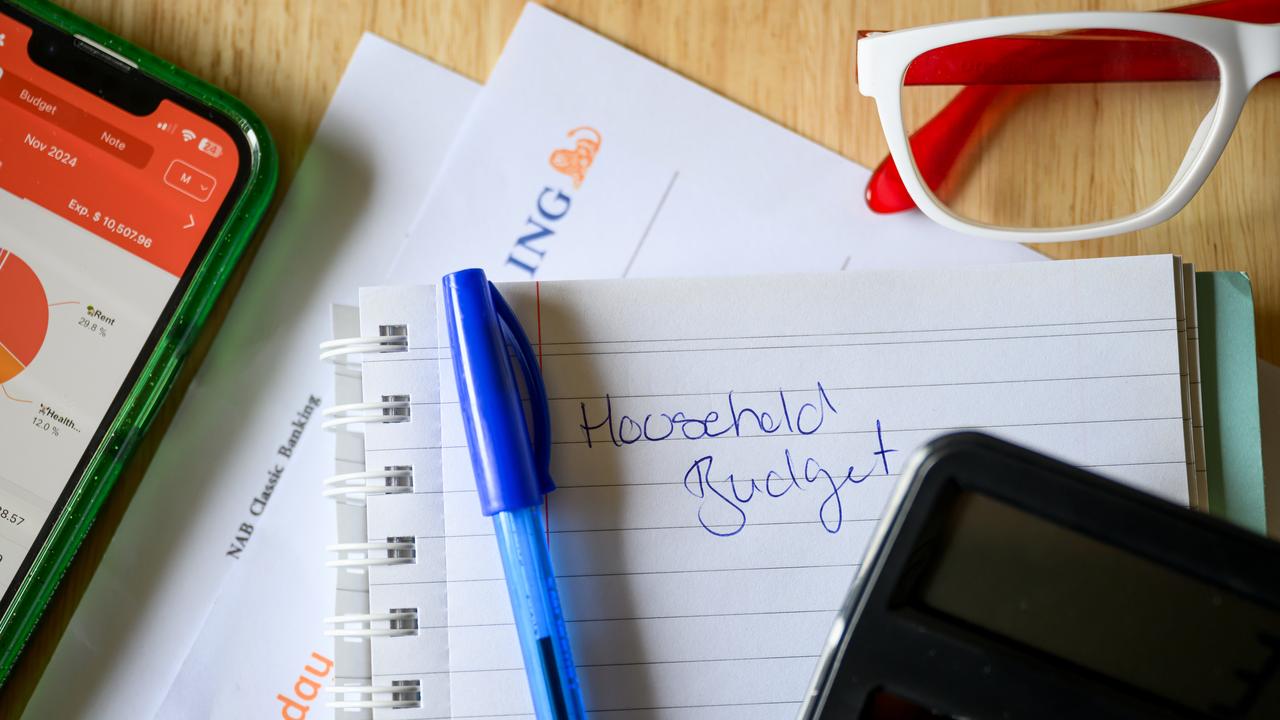
Asked on Monday if the government would move to revive the legislation he has championed all year as essential and urgent, Treasurer Daniel Mookhey raised the white flag.
“We are going to shift our focus now in getting our charitable sector, our small business sector and many others braced for some pretty steep increases in premiums,” Mr Mookhey told ABC radio.
He said without the reforms, insurance premiums would likely rise in NSW by “double digits over the next two years at least”, with the government to receive final advice on the issue on Monday.
“We expect NSW will have the highest premiums in the country,” he said.
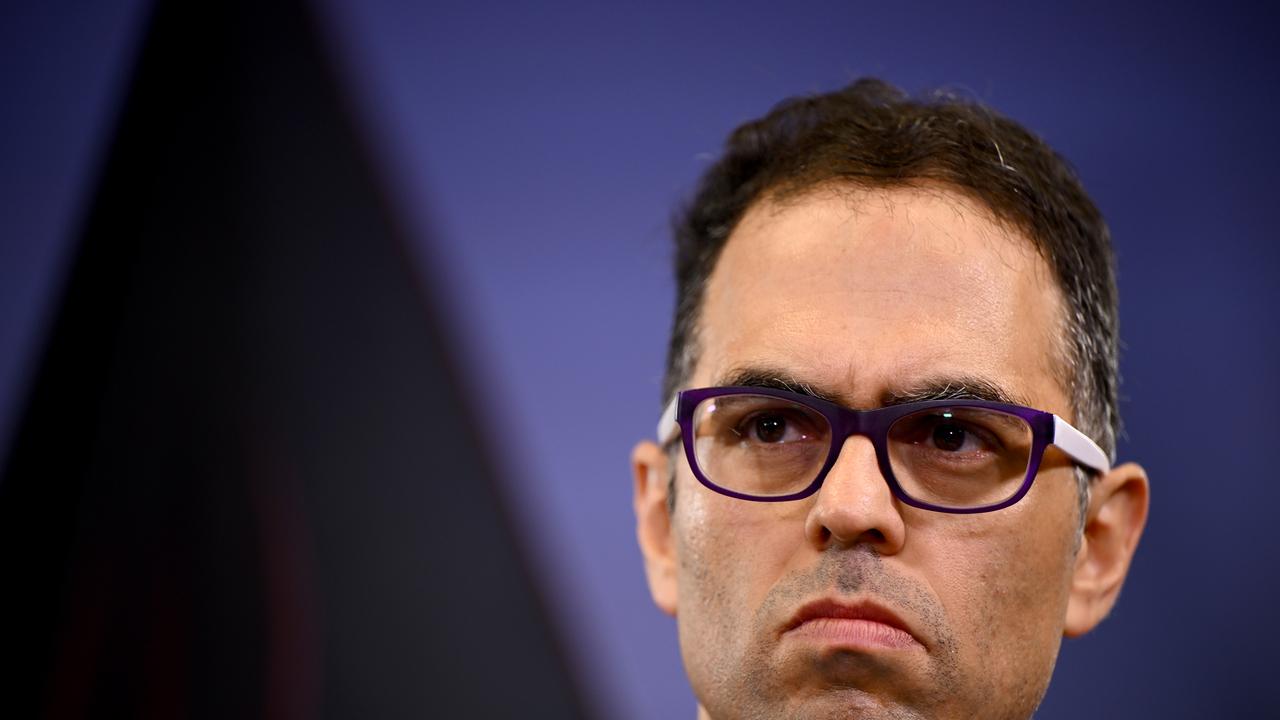
(Bianca De Marchi/AAP PHOTOS)
He blamed the government’s failure on the state opposition, which he said refused to negotiate on the reforms that were announced in March.
The Liberal opposition did not immediately respond to a request for comment.
The NSW Council of Social Service, the peak body for the state’s social services sector, said struggling families and those impacted by natural disasters would be hurt by the impasse.
Many charities would have to scale back services and teams during the peak holiday season due to higher premiums, chief executive Cara Varian said.
“As we head into Christmas, and we’re expecting there to be a big disaster season as well, the charities are gearing up ready to prepare but in reality they will be limited because of the cost,” Ms Varian said.
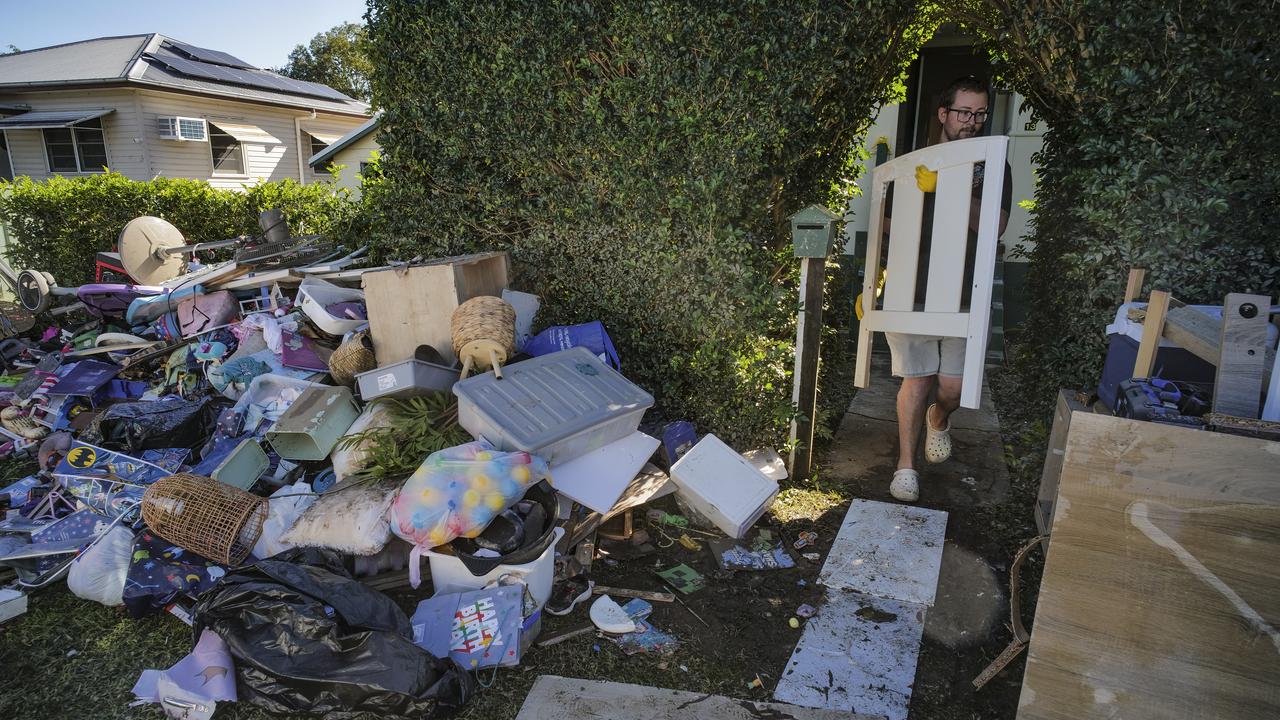
The Business Council of Australia called on state politicians to support what it said were important reforms.
“Without these reforms, businesses will face added premium pressure, making it harder to invest, employ and grow,” the body representing Australia’s largest employers said in a statement on Friday.
Unions NSW said in a statement that parliament’s rejection of the bill was a message to the government to “rediscover compassion and dignity for traumatised and vulnerable workers”.
“This is a missed opportunity to reform the NSW workers’ compensation system to improve it for everyone involved, especially injured workers,” Unions NSW secretary Mark Morey said on Friday.